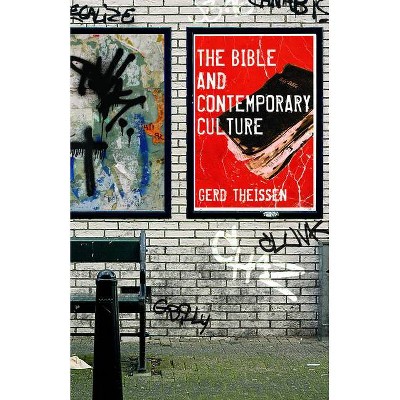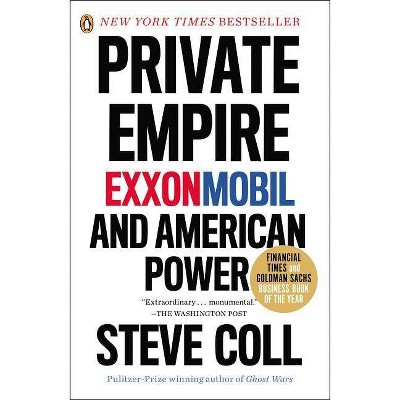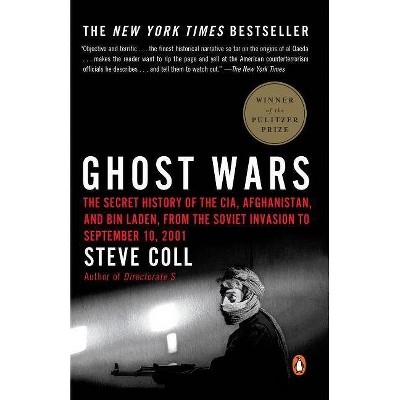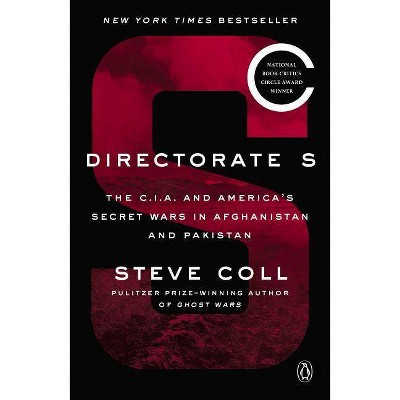The Postmodern Bible - by Bible & Culture Coll & & Culture Coll Bible & Culture Coll (Paperback)
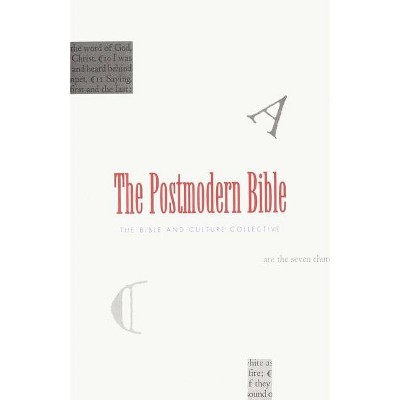
Similar Products
Products of same category from the store
AllProduct info
<p/><br></br><p><b> Book Synopsis </b></p></br></br>The burgeoning use of modern literary theory and cultural criticism in recent biblical studies has led to stimulating-but often bewildering-new readings of the Bible. This book, argued from a perspective shaped by postmodernism, is at once an accessible guide to and an engagement with various methods, theories, and critical practices transforming biblical scholarship today. Written by a collective of cutting-edge scholars-with each page the work of multiple hands-The Postmodern Bible deliberately breaks with the individualist model of authorship that has traditionally dominated scholarship in the humanities and is itself an illustration of the postmodern transformation of biblical studies for which it argues. The book introduces, illustrates, and critiques seven prominent strategies of reading. Several of these interpretive strategies-rhetorical criticism, structuralism and narratology, reader-response criticism, and feminist criticism-have been instrumental in the transformation of biblical studies up to now. Many-feminist and womanist criticism, ideological criticism, poststructuralism, and psychoanalytic criticism-hold promise for the continued transformation of these studies in the future. Focusing on readings from both the Hebrew Bible and the New Testament, this volume illuminates the current multidisciplinary debates emerging from postmodernism by exposing the still highly contested epistemological, political, and ethical positions in the field of biblical studies.<p/><br></br><p><b> Review Quotes </b></p></br></br><br><p>The Bible and Culture Collective comprises some of the most interesting minds in biblical studies today, and their collaboration has produced a work of very rich substance. The range of coverage of postmodern topics in a single volume is unique and impressive, the contents are current and comprehensive, and the scholarly judgments are sound and defensible.--William Scott Green, University of Rochester</p> <p/><p><i>The Postmodern Bible</i> is a transformative book. It summarizes deftly and accurately the major 'postmodern' interpretive modes and demonstrates how they open up the West's central sacred text to responsible, enriching, and even crucial new readings. The Collective's use of rhetorical, feminist, and other approaches also challenges the assumptions of these critical practices themselves and invites them to self-assessment in light of the unique witness of Scripture.--Robert Detweiler, Emory University</p> <p/><p>If you take the Bible seriously, looking at what it can mean for our postmodern times is imperative. If you take our culture seriously, assessing what the old book can mean for it is not superfluous either. This book is a handbook explaining to students and scholars how to interpret the Bible responsibly on both counts.--Mieke Bal, Amsterdam School for Cultural Analysis</p> <p/><p>This is an ideal book for classes explaining purposes and methodology of biblical interpretation. No serious program in Biblical Studies can afford to ignore <i>The Postmodern Bible. </i>The book demonstrates what the Bible can mean for our times.--Mieke Bal</p> <p/><br><p/><br></br><p><b> About the Author </b></p></br></br>The Bible and Culture Collective consists of <b>George Aichele</b>, Adrian College; <b>Fred W. Burnett</b>, Anderson University; <b>Elizabeth A. Castelli</b> (editor), Occidental College; <b>Robert M. Fowler</b>, Baldwin-Wallace College; <b>David Jobling</b>, St. Andrew's College (Saskatoon); <b>Stephen D. Moore</b> (editor), Wichita State University; <b>Gary A. Phillips</b> (editor), College of the Holy Cross; <b>Tina Pippin</b>, Agnes Scott College; <b>Regina M. Schwartz</b> (editor), Duke University; and <b>Wilhelm Wuellner</b>, Pacific School of Religion (retired).
Price History
Price Archive shows prices from various stores, lets you see history and find the cheapest. There is no actual sale on the website. For all support, inquiry and suggestion messagescommunication@pricearchive.us
